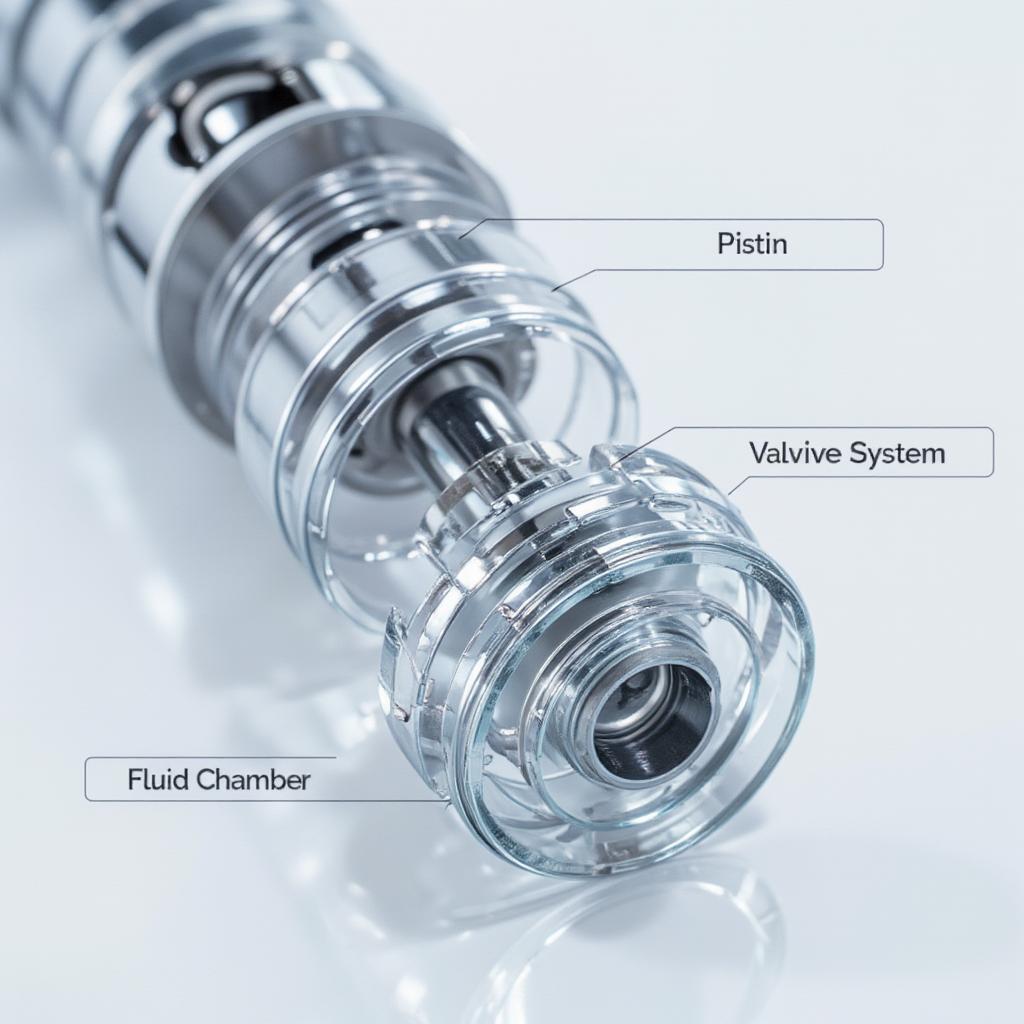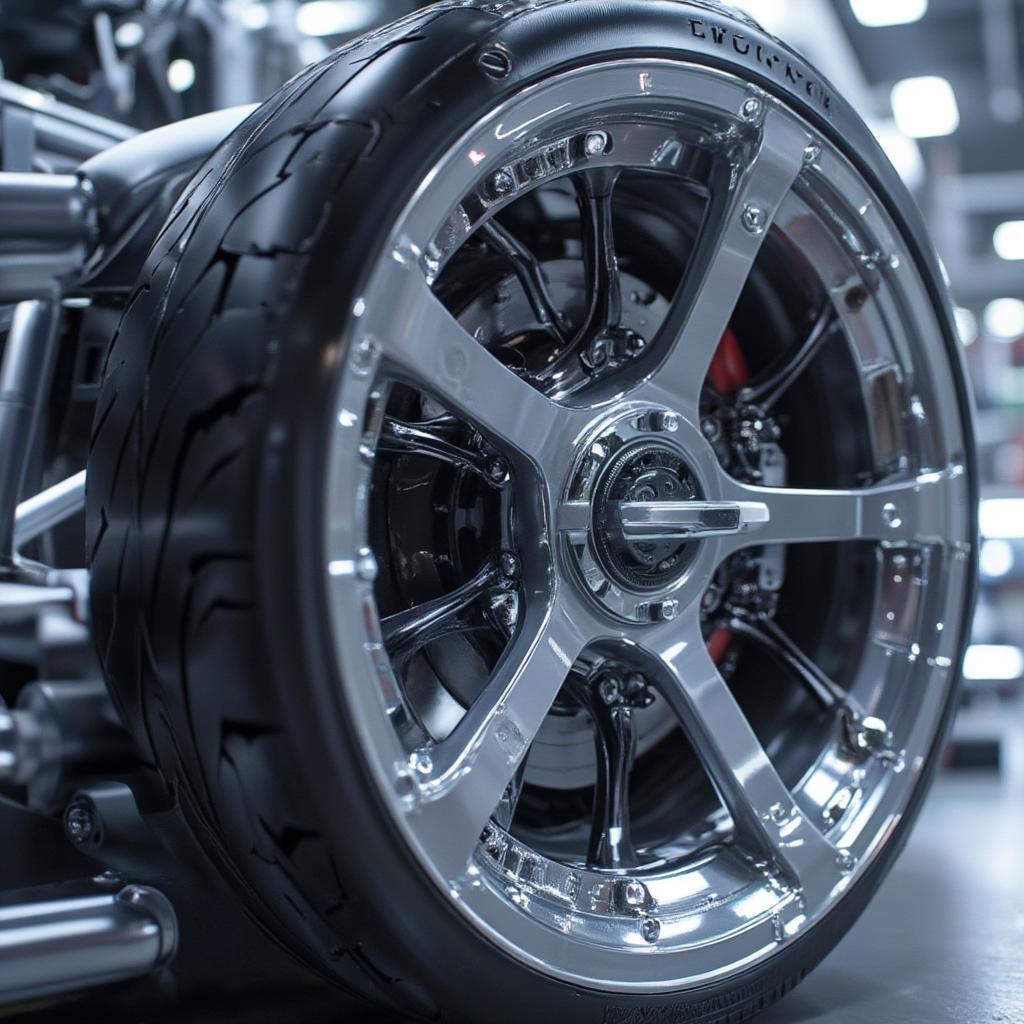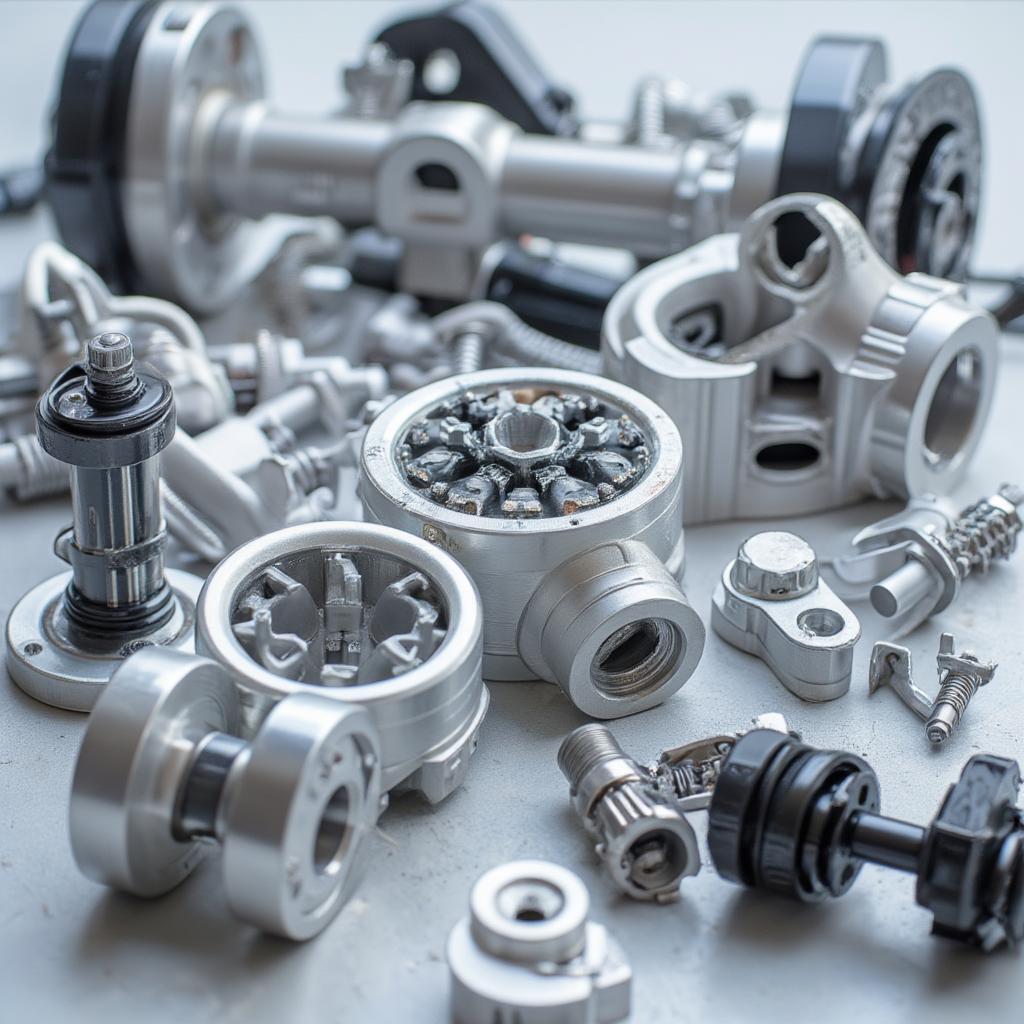Applied Science in Automotive Engineering: Shaping the Future of Mobility

Applied Science In Automotive Engineering is revolutionizing the way we design, manufacture, and experience vehicles. From the internal combustion engine to electric powertrains, and from basic suspension systems to advanced driver-assistance systems, the application of scientific principles is driving innovation across all aspects of the automotive industry. This constant evolution is shaping the future of mobility, leading to safer, more efficient, and more sustainable vehicles.
The Core Principles: Physics, Chemistry, and Materials Science in Automotive Engineering
At the heart of automotive engineering lies the fundamental principles of physics, chemistry, and materials science. Physics governs the motion, forces, and energy transformations within a vehicle. Understanding concepts like aerodynamics, thermodynamics, and mechanics is crucial for optimizing vehicle performance and fuel efficiency. Chemistry plays a vital role in developing new fuels, lubricants, and materials, while materials science focuses on selecting and engineering materials with the desired properties for various vehicle components, from lightweight body panels to high-strength engine parts.
Physics: Optimizing Performance and Efficiency
The laws of physics dictate how a vehicle interacts with its environment. Aerodynamics, the study of how air flows around objects, is crucial for minimizing drag and maximizing fuel efficiency. Thermodynamics, the study of heat and energy transfer, is essential for designing efficient engines and cooling systems. Mechanics, the study of motion and forces, underpins the design of every component from the suspension to the braking system. For example, understanding the principles of lever arms and torque is crucial in designing an effective braking system.
Chemistry: Fueling Innovation and Sustainability
Chemical engineering plays a significant role in developing new fuels and lubricants that are both high-performing and environmentally friendly. Research into alternative fuels like biofuels and hydrogen, as well as advancements in battery technology for electric vehicles, are driven by chemical principles. Furthermore, the development of advanced lubricants that reduce friction and wear in engine components relies heavily on chemical expertise.
Materials Science: Building Lighter and Stronger Vehicles
The choice of materials significantly impacts a vehicle’s performance, safety, and sustainability. Materials science enables engineers to select and develop materials with specific properties tailored to each component’s requirements. Lightweight materials like aluminum and carbon fiber composites are increasingly used to reduce vehicle weight and improve fuel efficiency. High-strength steels and advanced alloys are employed in critical components like the engine and chassis to ensure durability and safety.
Applied Science in Suspension and Damping Systems: The Welcome Shock Naue Advantage
Welcome Shock Naue is at the forefront of applying scientific principles to design and develop cutting-edge suspension and damping systems. We leverage advanced materials, innovative engineering techniques, and rigorous testing procedures to create systems that provide superior ride comfort, handling, and safety. Our commitment to applied science enables us to deliver solutions that meet the evolving demands of the automotive industry.
Advanced Materials for Enhanced Performance
Welcome Shock Naue utilizes advanced materials like high-strength aluminum alloys and specialized polymers in our suspension components. These materials offer superior strength-to-weight ratios, enabling us to reduce unsprung mass and improve vehicle responsiveness. Furthermore, we employ innovative damping technologies that adapt to changing road conditions, providing a smooth and controlled ride.
Engineering Excellence in Design and Testing
Our engineers employ sophisticated computer-aided design (CAD) and simulation tools to optimize the performance of our suspension and damping systems. We conduct rigorous testing, both in the laboratory and on the track, to ensure that our products meet the highest standards of quality, durability, and performance. This dedication to engineering excellence is what sets Welcome Shock Naue apart.
The Future of Applied Science in Automotive Engineering
The automotive industry is on the cusp of a technological revolution. Autonomous driving, electric vehicles, and connected car technologies are rapidly transforming the landscape of mobility. Applied science will continue to play a critical role in shaping this future, driving innovation in areas such as:
- Artificial Intelligence and Machine Learning: AI and machine learning are enabling the development of advanced driver-assistance systems (ADAS) and autonomous driving capabilities.
- Battery Technology: Advancements in battery technology are crucial for increasing the range and performance of electric vehicles.
- Lightweighting and Sustainability: The continued development of lightweight materials and sustainable manufacturing processes is essential for reducing vehicle emissions and improving fuel efficiency.
“The future of automotive engineering lies in the seamless integration of various scientific disciplines,” says Dr. Anya Sharma, Lead Research Scientist at Welcome Shock Naue. “By embracing innovation and pushing the boundaries of applied science, we can create vehicles that are not only safer and more efficient but also more sustainable and enjoyable to drive.”
Conclusion
Applied science in automotive engineering is the driving force behind continuous innovation in the automotive industry. From fundamental principles of physics and chemistry to advanced materials science, the application of scientific knowledge is crucial for developing vehicles that meet the ever-evolving demands of modern society. Welcome Shock Naue is committed to leveraging applied science to create cutting-edge suspension and damping systems that enhance vehicle performance, safety, and comfort. The future of mobility relies on the continued advancement of applied science in automotive engineering, and Welcome Shock Naue is proud to be at the forefront of this exciting journey.


FAQ
-
What is applied science in automotive engineering? Applied science in automotive engineering refers to the practical application of scientific principles and knowledge to design, develop, and improve vehicles and their components.
-
How is physics used in automotive engineering? Physics principles are used to optimize vehicle aerodynamics, engine thermodynamics, and the mechanics of various systems like suspension and braking.
-
What role does chemistry play in the automotive industry? Chemistry is crucial for developing new fuels, lubricants, and materials that enhance vehicle performance and sustainability.
-
Why is materials science important in automotive engineering? Materials science enables engineers to select and develop materials with specific properties for different vehicle components, optimizing for weight, strength, and durability.
-
How does Welcome Shock Naue apply science to its products? Welcome Shock Naue uses advanced materials, sophisticated engineering techniques, and rigorous testing to develop high-performance suspension and damping systems.
-
What is the future of applied science in automotive engineering? The future will see increased application of AI, advancements in battery technology, and a greater focus on lightweighting and sustainability.
-
What are some examples of applied science in car suspension systems? Examples include the use of advanced materials like high-strength aluminum alloys and the application of sophisticated damping technologies that adapt to varying road conditions.
-
How does applied science contribute to automotive safety? Applied science leads to safer vehicles through the development of features like advanced driver-assistance systems, stronger materials for crash protection, and more effective braking systems.
-
Why is applied science important for the future of mobility? Applied science is essential for creating more sustainable, efficient, and safer transportation solutions that address the challenges of a growing global population and increasing environmental concerns.




